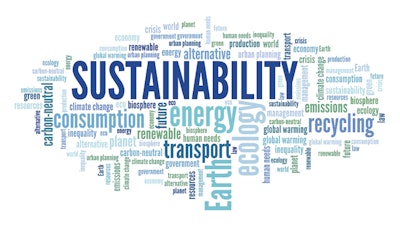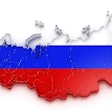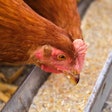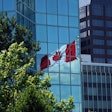
For the January-March 2023 period, Scandi Standard is reporting an 18% increase in net sales. These amounted to 3.284 billion krona (SEK; US$321 million) — up from SEK2.793 billion in the same period of 2022. At constant exchange rates, the improvement amounted to 14% year-on-year.
Meanwhile, there was a 43% improvement in Earnings Before Interest, Taxes, Depreciation, and Amortization (EBITDA) at SEK196 million.
At SEK93 million, operating income (Earnings Before Interest and Taxes; EBIT) for the last quarter was 149% higher year-on-year. As a result, the operating margin increased from 1.3% a year previously to 2.8%
Commenting on the results, the group’s managing director and CEO Jonas Tunestål said that these improvements in performance demonstrate Scandi Standard’s strong position in most of its markets, as well as in all three business segments.
As well as Sweden, Scandi Standard operates poultry businesses in Denmark, Finland, Ireland, and Norway.
Improvements despite challenges
Largest of the group’s business segments is Ready-to-Cook (RTC), which accounted for more than SEK2.37 billion of overall sales.
Tunestål commented that the sector has been able to manage the on-going rises in prices for inputs including energy and fuel. However, combined with price increases and operational improvements implemented, the group’s market position remains strong, he said. By the end of the last quarter, there was a downward trend in some of these costs. According to Tunestål, these should start to impact the business in the next three months.
For the RTC business in Denmark, the quarterly loss of SEK46 million was SEK5 million less than in the same period of 2022. With a range of savings, adaptations, and efficiencies in place, future improvements in this business are expected in the coming months.
“My focus will remain on ensuring profitability in our segments before we focus on higher volumes,” said Tunestål. “When demand increases again, we will be able to quickly transition and adjust volumes.”
Meanwhile, net sales by Scandi Standard’s Ready-to-Eat (RTE) business rose by 19% to SEK765 million. At SEK45 million, operating income for this sector was SEK10 million higher than in the first quarter of 2022.
Last year, results for RTE were strongly influencing by strong demand for breaded products. However, Tunestål noted that markets are now changing. As a result, investment originally planned for Denmark has been reassigned to Norway, where there will be a greater impact on profitability.
Scandi Standard’s Other/Ingredients business aims at optimization of the use of the whole bird, and adding value to products. For this sector, operating income amounted to SEK24 million — up from SEK10 million in the first quarter of last year.
Continued focus on sustainability
Previously, Scandi Standard had stated its ambition to become a leader in the global chicken industry for sustainability.
“I’m convinced that our systematic efforts continuously to improve are a competitive advantage, and we are continuing investments that encompass the entire value chain,” stated Tunestål.
Over the past three months, he said, group-wide goals have been integrated into the individual national operations. Among the newly implemented local goals and action plans are initiatives to reduce the use of plastics and packaging.
Included in the quarterly financial report are the group’s results for broiler feed efficiency. For the three months just ended, this is 1.51 — a slight deterioration from the 1.50 reported for the same period of 2022.
At the annual general meeting following publication of these results, it was agreed that a dividend should be set at SEK1.15 per share. Furthermore, it was announced that Karolina Valdemarsson had been elected to join the board.
Following a recent review, WWF has amended its Meat Guide with respect to the sustainability of poultry meat from Sweden, according to Scandi Standard.
As a result of the firm’s data submissions, WWF has adjusted its assessment for Kronfågel chicken. Previously classified as “red,” its climate impact now stands below the threshold of 3kg CO2 per kg meat. This means it receives a green light for climate impact, and a yellow light as its overall assessment.
The rating for the firm’s KRAV chicken — produced under Swedish organic standards — retains its green light.
More on Scandi Standard
In the Nordic region and Ireland, Scandi Standard is the leading producer of chicken-based food products, according to the company’s web site. It produces, markets and sells ready to eat, chilled and frozen products under a number of well-known brands, including Kronfågel, Danpo, Den Stolte Hane, Manor Farm, and Naapurin Maalaiskana. In Norway, the company also produces and sells eggs. With a workforce of around 3,200, Scandi Standard generates annual sales of more than SEK12 billion.
With annual slaughterings of more than 177 million birds, Scandi Standard is among the top 20 poultry producers in Europe, according to WATTPoultry.com’s Top Poultry Companies survey.
In its annual report for 2022, Scandi Standard reported year-on-year improvements in net sales and profitability.

















